Description
The Bastard of Istanbul is another work by Turkish bestselling author Elif shafak, originally written in English.
This book tells the story of Turkish and Armenian-American families from the perspective of four generations of women. It is a story about the norms of society, family secrets and the urgent need for dialogue, and of course the concept of forgetfulness; The collective oblivion that Turkey has suffered in general.
French-born Turkish author Elif افafak is best known in Iran for his book The Nation of Love.
“Nation of Love”, the fever of publishing and reading of which has spread, like other works of this author in Iran, has been faced with a strange story.
Arsalan Fassihi, the translator of the Turkish author’s books, says: Alif Shafak does not have a book called “The Nation of Love”. “Nation of Love” is the name I chose for the Persian translation of Shafak’s book.
Several other books have been published by this author, including “The Bastard of Istanbul”, “10 Minutes and 38 Seconds in This Strange World”, “Three Daughters of Eve”, “After Love”, “Love” and “The Black Lion”, some of which, such as “Shirsiah” is a collection of articles that has been published in Iran as an independent book for the hot market of Elif افafak’s works.
Unlike in Iran, where Elif افafak’s works are widely published, in Turkey, due to the sexual and immoral content of his works, there are many restrictions on publication.
“Alif افafak does not represent the reality of Turkey, and if you know Rumi based on Alifshafak’s writings, it means that both classical Turkish literature and “Classical Iranian literature has reached its end point and, in fact, has gone the wrong way.” In Turkey, Shafak has been prosecuted for publishing the book “The Bastard of Istanbul”.
“Mashreq” writes in a report on the works published by this author in Iran:
“A cursory look at the world of Shafak’s stories clearly shows that this dualistic, cosmopolitan, secular, and outrightly anti-religious writer is not merely a writer but a political-cultural ‘project’, and that this is the set of factors that go hand in hand. “They have contributed to the strange prosperity of his work in Iran,” he said.
Elif افafak, who has sexual perversions, is accused of misleading young people with his works.
However, in Iran, he quickly became a popular figure due to his convenient platform for publishing underground and illegal books, and his works were also marketed under the guidance of Irshad.
For the first time, the book “10 minutes and 38 seconds in this strange world” was revoked in Iran.
The book had reached its fourth edition before it was canceled. Even now, the Ministry of Guidance has revoked the licenses of the two books “Impure Istanbul” and “Shame”.
The Bastard of Istanbul was originally written in English and published in 2006 by Viking Adult. The book tells the story of Turkish families and Armenian-American families from the perspective of four generations of women.
It is a story about the norms of society, family secrets and the urgent need for dialogue, and of course the concept of forgetfulness; The collective oblivion that Turkey has suffered in general.
Shafakbeh was accused by a Turkish court of insulting a Turk in his second novel, The Bastard of Istanbul, for referring to the Armenian genocide. His case was closed in June 2006, but reopened a few months later, with him facing up to three years in prison.
His translator and publisher faced the same punishment, but his case was closed on September 21, 2006 for lack of evidence.

An introduction to the bastard of Istanbul
Elif افafak is not an unknown figure to the Iranian audience. His book Nation of Love has reached its several editions and I think other works by the same author have been translated and distributed in Iran.
Istanbul’s bastard book, however, will not be able to be translated uncensored in Iran. A colorful book about a city that tries to hide the secrets of the past.
According to افafak Berlin, Istanbul does not insist on shedding light on all the dark corners of the past. In Istanbul, only architecture and calligraphy tell the story of the past, here it is an attempt to fragment history.
Trying to take responsibility for this and that. And in the last stage to the fathers who are no more and the sons and daughters to whom the subject has nothing to do.
They insist on saying that the past was not, firstly, what the enemies (in this Armenian book) claim, and secondly, if there were mistakes, it happened in the past, which they ended years ago.
The insistence on secrecy and forced forgetfulness is the subject of this book. Shafak believes that the past is everything but the past.
Two young girls in the story: Asia and Armanush in two parts of the world are still struggling with the consequences of this silent past.
Shafak in his story does not really insist on dividing society into a victim.
He also considers this as one of the consequences of manipulating in the past, in memories and events. Both sides are involved. The victim can no longer rid himself of the shadows of the past, he can no longer look forward to the burden that the past has placed on him.
In the book we read from the language of Baron Baghdasaryan: Some Armenians in exile do not want the Turks to recognize the genocide.
If they do, they will empty our feet and seize the rope that binds us so tightly.
So far, the Turks have seriously denied their criminal acts, and we have seriously played the role of the victim.
There seem to be old chains on both sides that need to be broken.
On the other hand, the Turks do not want to recognize the past. By raising issues such as the conditions of war, violence of the Armenian youth, national integrity and…
They are really used wherever they can be, they are not willing to accept their responsibility in a criminal act, and thus, instead of going forward, they are constantly forced to justify and in some cases even repeat the past.
For those of us who have always lived in our country, sealed with unquestionable rulings, that history is rewritten every time a new government comes and therefore there is no trust in what is written and said, maybe this book is a mirror to see better .
Like the Turks, we have no choice but to deal with the past.
As long as we do not ignore it, as long as we are constantly deleting one part of it and enlarging the other part, we will divide society into a victim without wanting to, and we will never be able to become a nation.
In this book, Shafak tries to make the Turks understand that their country, their customs, their culture are worth giving up on insisting on many rulings that only bind their hands and feet.
He was taken to court for the same book and the same professions. What will we do .

The Bastard of Istanbul tells the story of Turkish and Armenian-American families from the perspective of four generations of women.
It is a story about the norms of society, family secrets and the urgent need for dialogue, and of course the concept of forgetfulness;
The collective oblivion that Turkey has suffered in general.
Shafak was accused by a Turkish court of insulting a Turk in his second novel, The Bastard of Istanbul, for referring to the Armenian genocide.
His case was closed in June 2006, but reopened a few months later, with him facing up to three years in prison.
His translator and publisher faced the same punishment, but his case was closed on September 21, 2006 for lack of evidence.
1- Introducing the book on YouTube
2- Introducing the book in Aparat



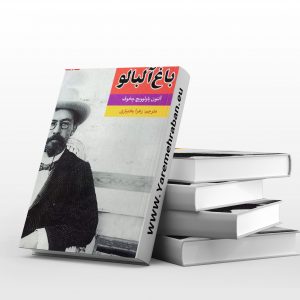




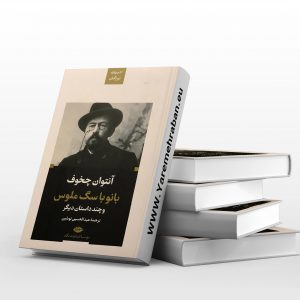

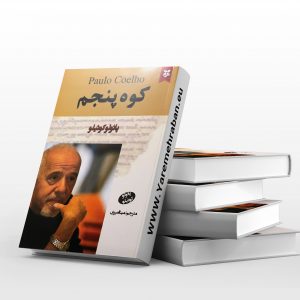
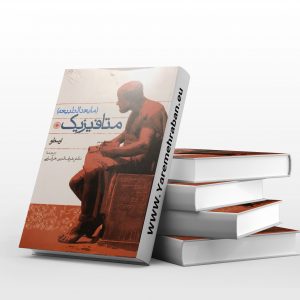
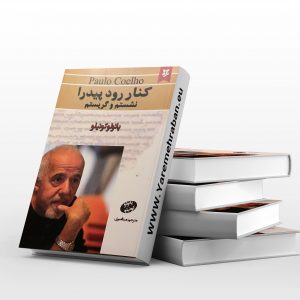

Reviews
There are no reviews yet.